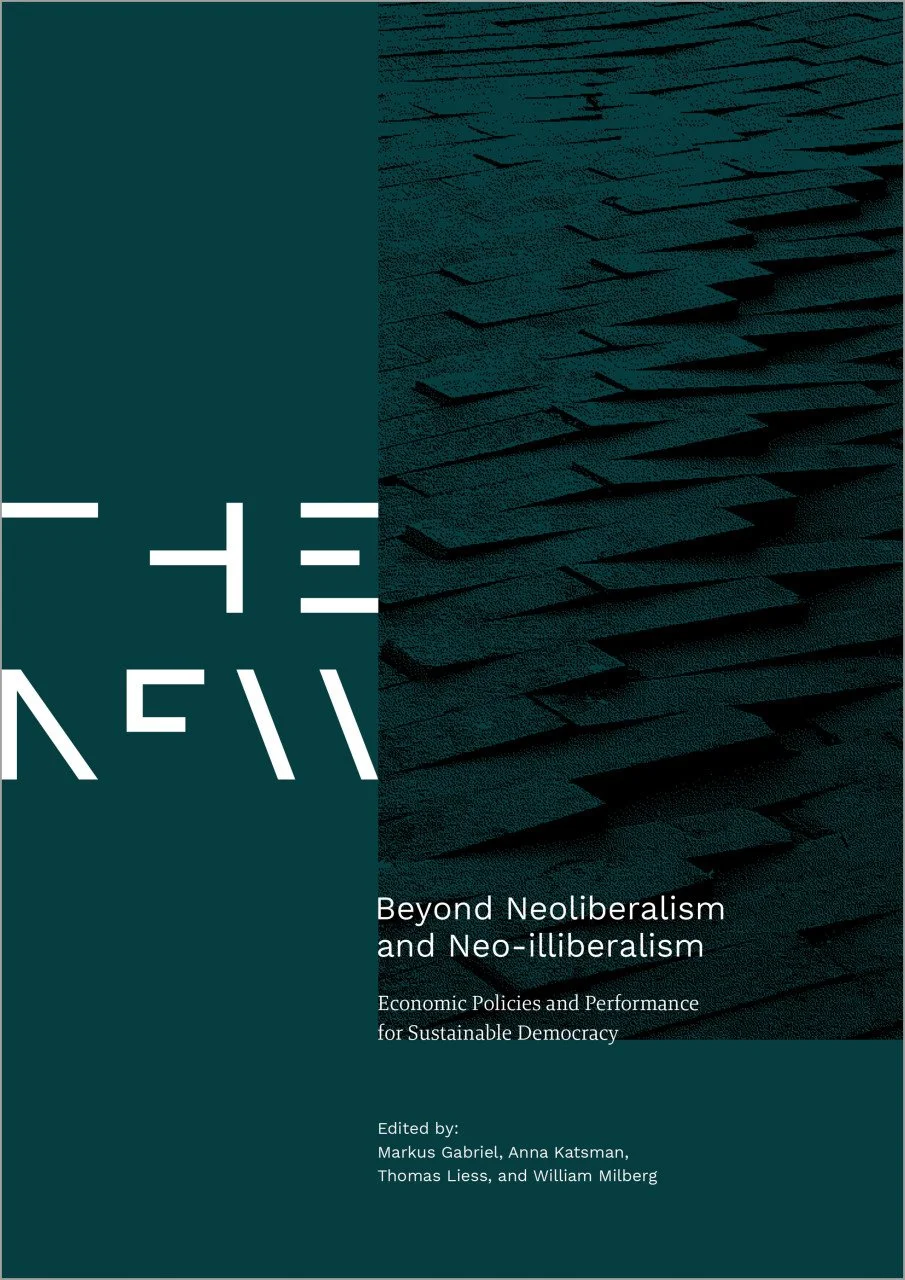Social Research Journal: Challenges to Democracy and the Future of Capitalism
by William Milberg, Guest Editor.
Publisher: Johns Hopkins University Press (October 2, 2024)
ISSN: 1944-768X
PRINT ISSN: 0037-783X
Social Research has its origins in the New School’s historic effort to provide intellectuals safe haven as the Nazis began to threaten Jewish scholars prior to the onset of WWII. This group of rescued scholars, known as the University in Exile, launched Social Research: An International Quarterly of the Political and Social Sciences in 1934 on the core conviction that every true university must have its own distinct public voice. Today, that profound voice resonates in each issue, as multidisciplinary scholars, writers, and experts take on contentious social issues, countries in transition, and phenomena that seem ripe for exploration. Periodic special issues are devoted to the proceedings of the journal’s renowned conferences at the New School.
Beyond Neoliberalism and Neo-illiberalism: Economic Policies and Performance for Sustainable Democracy
by William Milberg, Markus Gabriel, Anna Katsman, & Thomas Liess
Paperback: 232 pages
Publisher: Transcript Verlag, Bielefeld (August 27, 2024)
ISBN: 978-3-8376-7487-3
In many countries, the political backlash against neoliberalism has mainly been a retreat from democracy, with a decline in independence of the judiciary and the monetary authorities, increased control of the media, and manipulation of elections for purposes of authoritarian control. The economic dynamics and the impact of neoliberalism, i.e. deregulation and liberalized markets, is just one cause of this authoritarian shift. The contributors to this volume examine the impact of neoliberal economic policies in relation to cultural and political factors and how these have promoted the recent authoritarian turn, as well as probing the economic policies and performance of the illiberal regimes.
Outsourcing Economics: Global Value Chains in Capitalist Development
by William Milberg & Deborah Winkler
Paperback: 370 pages
Publisher: Cambridge University Press (May 24, 2013)
ISBN-10: 1107609623
ISBN-13: 978-1107609624
Outsourcing Economics has a double meaning. First, it is a book about the economics of outsourcing. Second, it examines the way that economists have understood globalization as a pure market phenomenon, and as a result have "outsourced" the explanation of world economic forces to other disciplines. Markets are embedded in a set of institutions - labor, government, corporate - that mold the power asymmetries that influence the distribution of the gains from globalization. In this book, William Milberg and Deborah Winkler propose an institutional theory of trade and development. They find that offshoring reduces employment and raises income inequality in countries that lack institutions supporting workers. They also find that offshoring allows firms to reduce domestic investment and focus on finance and short-run stock movements. Development has become synonymous with "upgrading" in global value chains, but this is not sufficient for improved wages or labor standards.
The Making of the Economic Society
(The Pearson Series in Economics)
by Robert Heilbroner & William Milberg
Series: The Pearson Series in Economics
Edition: Thirteenth
Paperback: 224 pages
Publisher: Prentice Hall; 13 edition (July 16, 2011)
ISBN-10: 0136080693
ISBN-13: 978-0136080695
With its roots in history and eyes on the future, this book traces the development of our economic society from the Middle Ages to the present, offering a balanced perspective of why our economy is the way it is and where it may be headed. It explores the catalytic role past economic trends and dynamics–particularly capitalism–have played in creating the present challenges we face, and offers suggestions on how we may deal with them most effectively in the future.
The Crisis of Vision in Modern Economic Thought
by Robert Heilbroner & William Milberg
Paperback: 131 pages
Publisher: Cambridge University Press; 1st edition (January 26, 1996)
ISBN-10: 0521497744
ISBN-13: 978-0521497749
A deep and widespread crisis affects modern economic theory, a crisis that derives from the absence of a "vision"--a set of widely shared political and social preconceptions--on which all economics ultimately depends. This absence, in turn, reflects the collapse of the Keynesian view that provided such a foundation from 1940 through the early 1970s, comparable to earlier visions provided by Smith, Ricardo, Mill, and Marshall. The "unraveling" of Keynesianism has been followed by a division into discordant and ineffective camps whose common denominator seems to be their shared analytical refinement and lack of practical applicability. This provocative analysis attempts both to describe this state of affairs, and to suggest the direction in which economic thinking must move if it is to regain the relevance and remedial power it now pointedly lacks.




